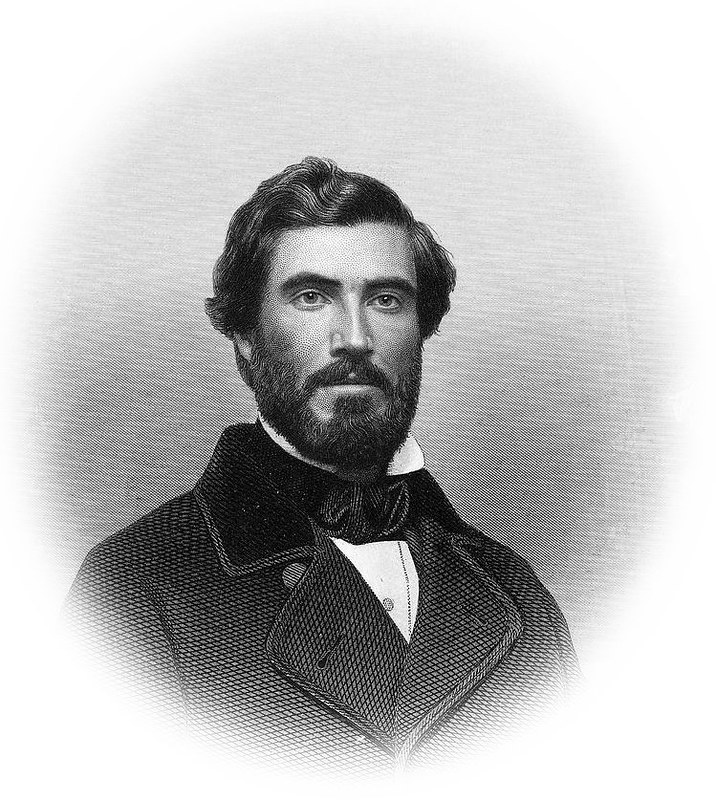
Hinton Rowan Helper (December 27, 1829 – March 9, 1909) was an American Southern critic of slavery during the 1850s. In 1857, he published a book which he dedicated to the “nonslaveholding whites” of the South. The Impending Crisis of the South, written partly in North Carolina but published when the author was in the North, argued that slavery hurt the economic prospects of non-slaveholders, and was an impediment to the growth of the entire region of the South. Anger over his book due to the belief he was acting as an agent of the North attempting to split Southerners along class lines led to Southern denunciations of ‘Helperism’.
The book, which was a combination of statistical charts and provocative prose, attracted little attention until 1859 when it was widely reprinted in condensed form by Northern opponents of slavery. Helper concluded that slavery hurt the Southern economy overall by preventing economic development and industrialization, and was the main reason why the South had progressed so much less than the North, according to the results of the 1850 census). Helper spoke on behalf of the majority of Southern whites of moderate means—the Plain Folk of the Old South—who he said were oppressed by a small but politically dominant aristocracy of wealthy slave-owners.
The reaction in the South was very negative. John Spencer Bassett studied the issue and observed in 1898 that circulating Helper’s book could be the basis of criminal charges. Politicians often accused each other of having read it, but many of the most successful politicians read it and used its observations of the negative effects of slavery as the basis of their attempts to solve some of the problems Helper pointed out slavery caused.In his 1867 essay, “War of races. By whom it is sought to be brought about. Considered in two letters, with copious extracts from the recent work of Hilton R. Helper,” John Harmer Gilmer calls Helper “a profane miscreant,” one of many insults directed at Helper in that essay.[8]
There are very few references to blacks in the book, and certainly slavery as an economic institution is denounced, not black people. It generated a furor in the South, where authorities banned its possession and distribution and burned copies that could be seized. Between 1857 and 1861, nearly 150,000 copies of the book were circulated, and in 1860, the Republican party distributed it as a campaign document. In December 1859, Democrats returning to Congress reacted with indignation because 68 Republicans had endorsed the book and planned to use it as campaign literature in the presidential election of 1860. Opponents blocked the election of Republican John Sherman as speaker because he had endorsed the book.